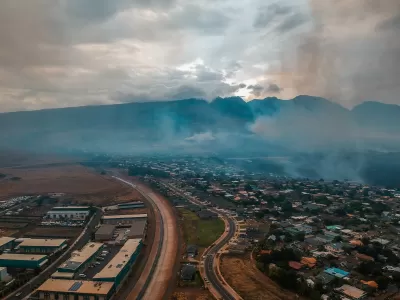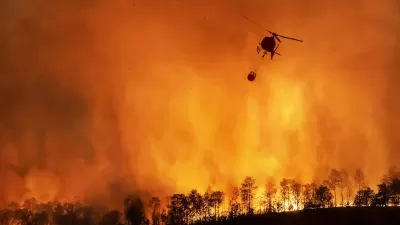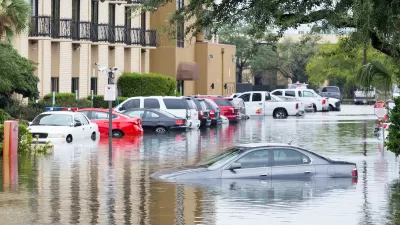One year after the devastating Maui wildfires, UH researchers are addressing the disaster's impacts through studies on health, environmental contamination, disaster preparedness, and housing, aiming to support recovery and improve resilience.

One year after the catastrophic wildfires on Maui, University of Hawai'i researchers have been actively involved in assessing and addressing the disaster's impact. Their research spans several areas, including health studies on wildfire exposure, environmental effects on coral reefs and drinking water, and innovations in disaster preparedness and response. These efforts aim to better understand and mitigate the long-term consequences of the fires on both people and the environment.
Significant studies include the Maui Wildfire Exposure Study, which monitors health outcomes for residents affected by the fire, and investigations into contamination of water sources and coastal ecosystems. Additionally, researchers are working on projects to improve disaster readiness, such as developing AI-based systems for wildfire forecasting and monitoring.
The University of Hawai'i's comprehensive approach also includes evaluating the economic impacts of the disaster, particularly the ongoing housing crisis exacerbated by the fires. Their research seeks to support recovery efforts and enhance resilience against future disasters by providing critical data and developing strategies for better preparedness and response.
FULL STORY: Maui fires 1 year on: UH research continues to assess impacts, support recovery

Planetizen Federal Action Tracker
A weekly monitor of how Trump’s orders and actions are impacting planners and planning in America.

Chicago’s Ghost Rails
Just beneath the surface of the modern city lie the remnants of its expansive early 20th-century streetcar system.

San Antonio and Austin are Fusing Into one Massive Megaregion
The region spanning the two central Texas cities is growing fast, posing challenges for local infrastructure and water supplies.

Since Zion's Shuttles Went Electric “The Smog is Gone”
Visitors to Zion National Park can enjoy the canyon via the nation’s first fully electric park shuttle system.

Trump Distributing DOT Safety Funds at 1/10 Rate of Biden
Funds for Safe Streets and other transportation safety and equity programs are being held up by administrative reviews and conflicts with the Trump administration’s priorities.

German Cities Subsidize Taxis for Women Amid Wave of Violence
Free or low-cost taxi rides can help women navigate cities more safely, but critics say the programs don't address the root causes of violence against women.
Urban Design for Planners 1: Software Tools
This six-course series explores essential urban design concepts using open source software and equips planners with the tools they need to participate fully in the urban design process.
Planning for Universal Design
Learn the tools for implementing Universal Design in planning regulations.
planning NEXT
Appalachian Highlands Housing Partners
Mpact (founded as Rail~Volution)
City of Camden Redevelopment Agency
City of Astoria
City of Portland
City of Laramie





























